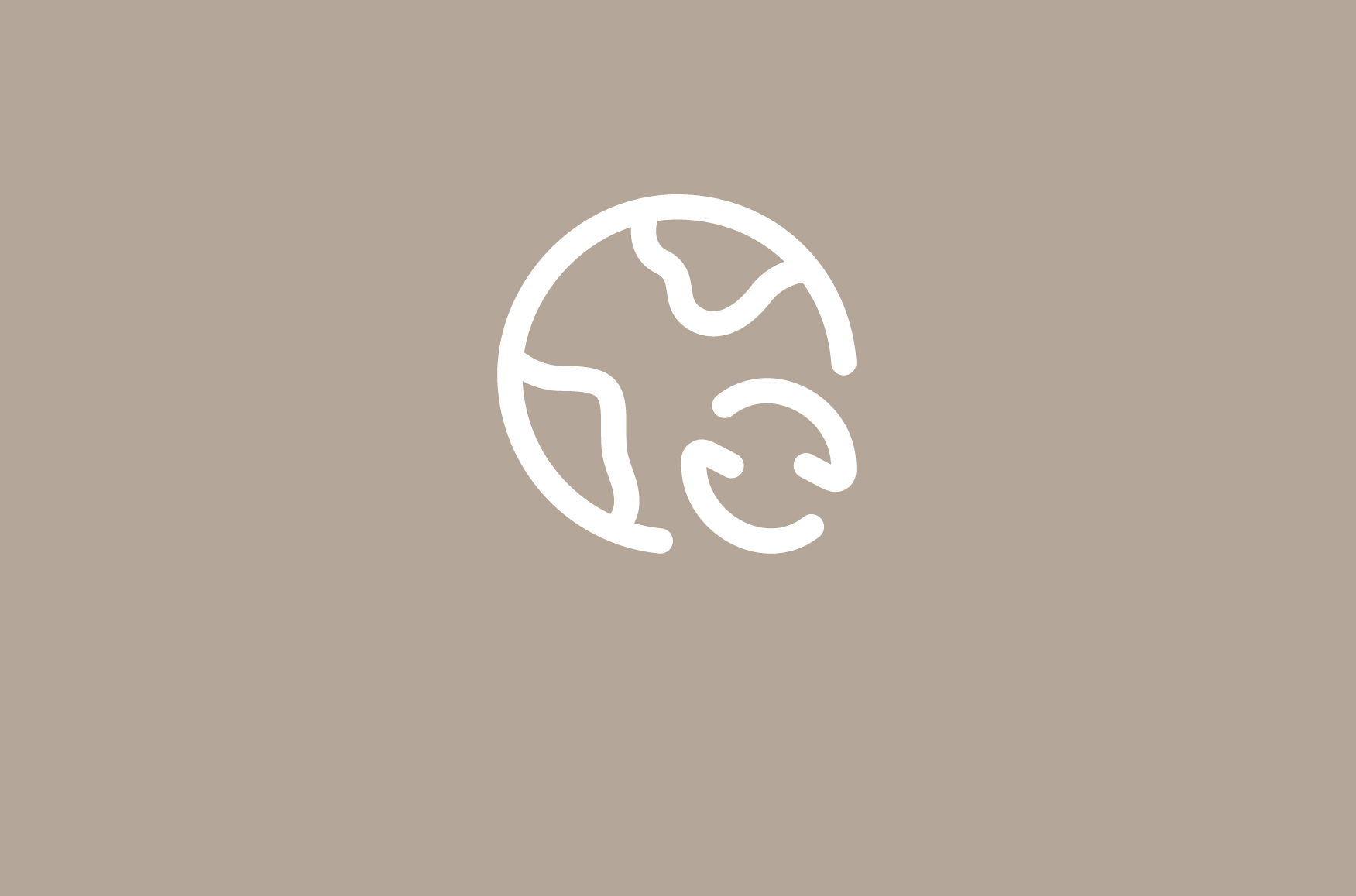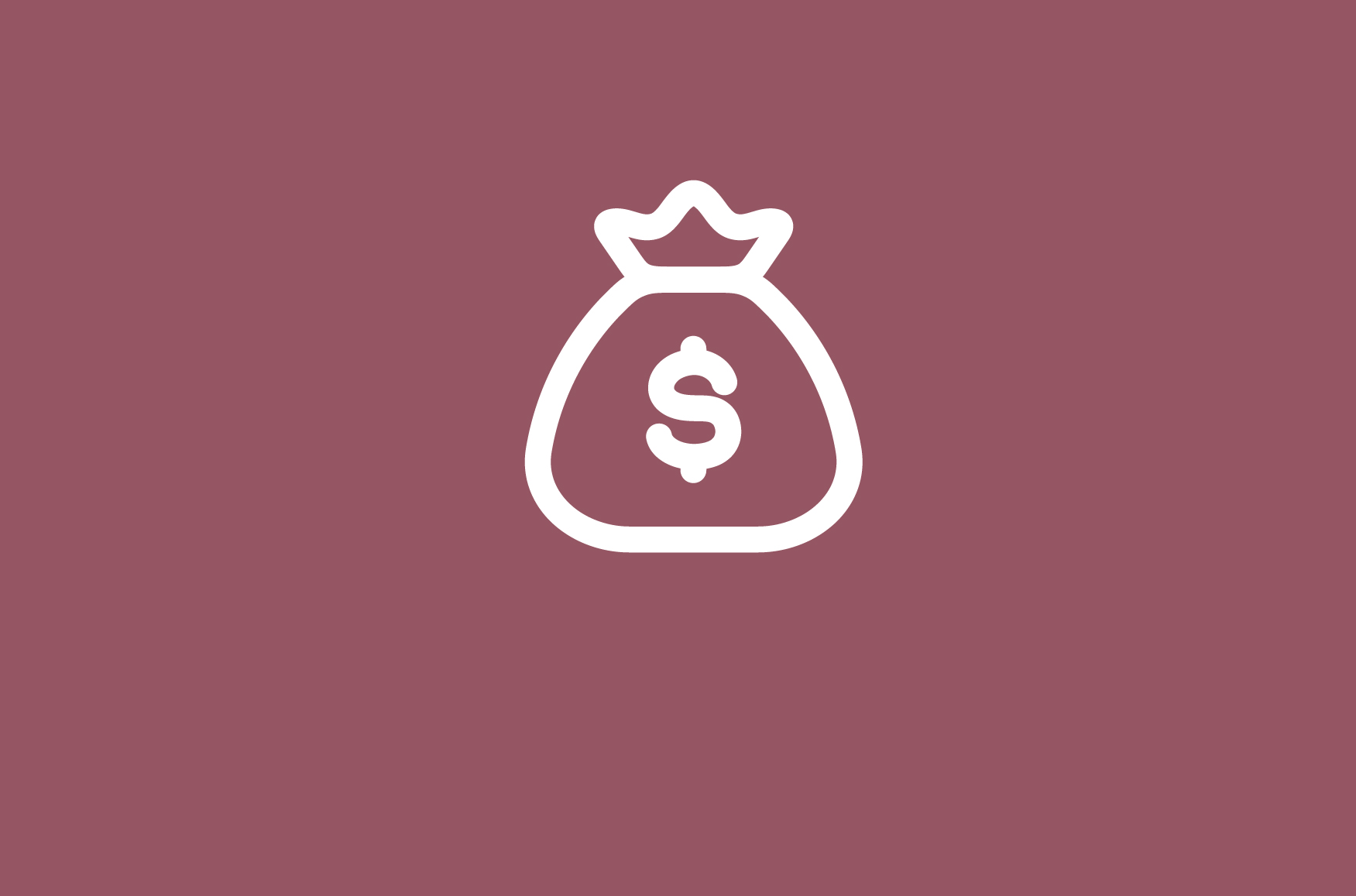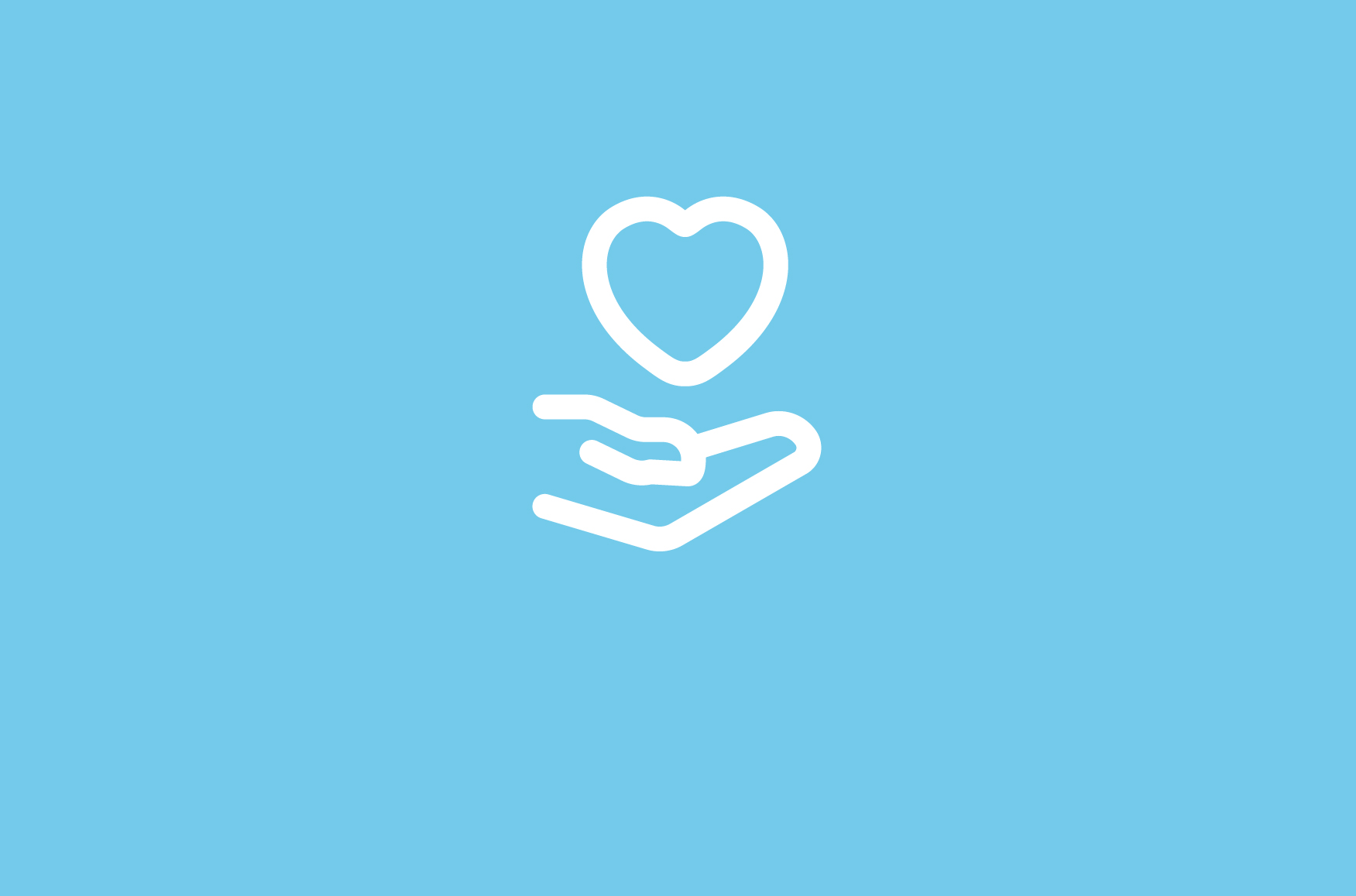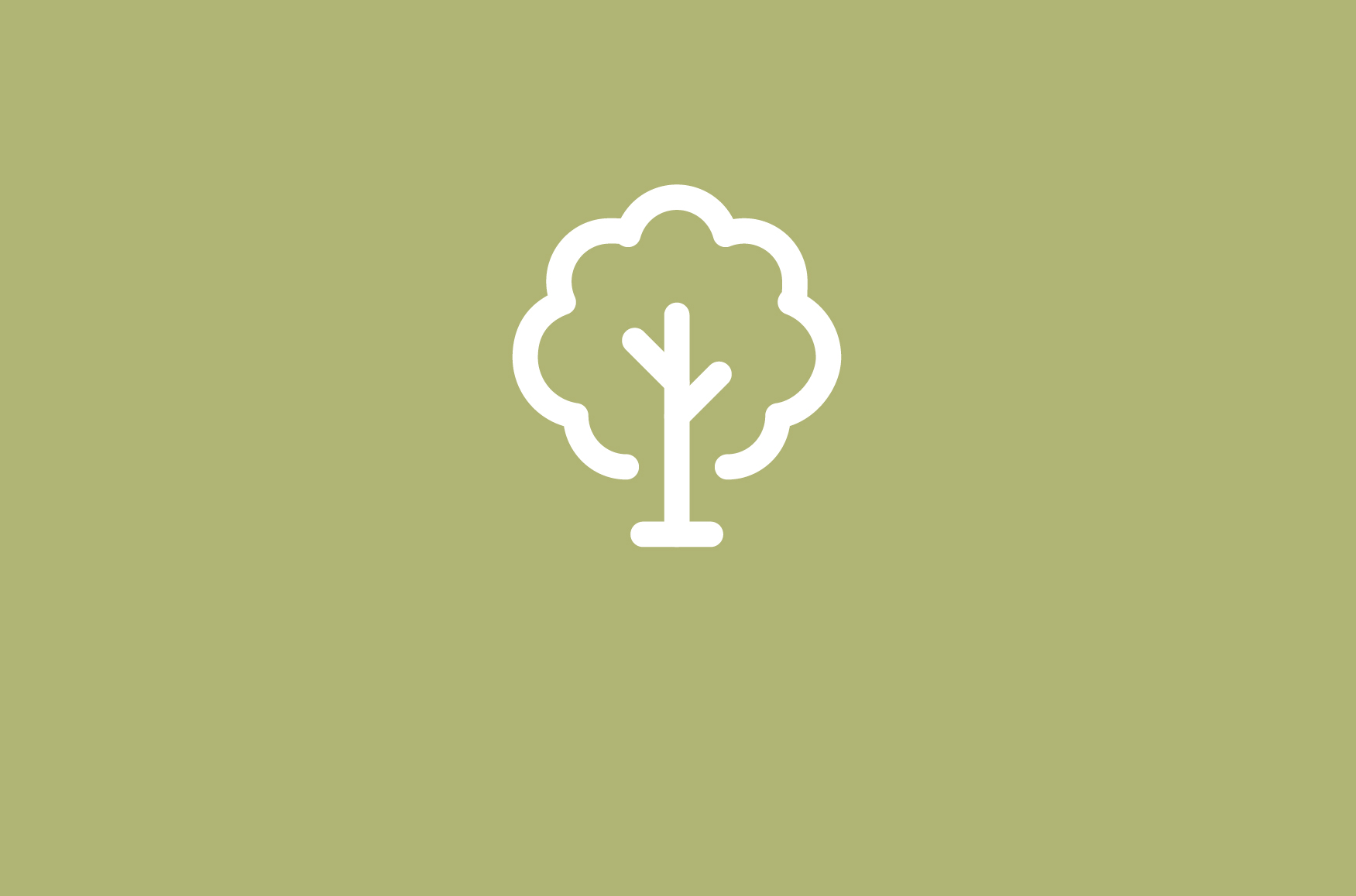1. Sustainable corporate governance // 2. Business model and business performance // 3. Social affairs // 4. Environment
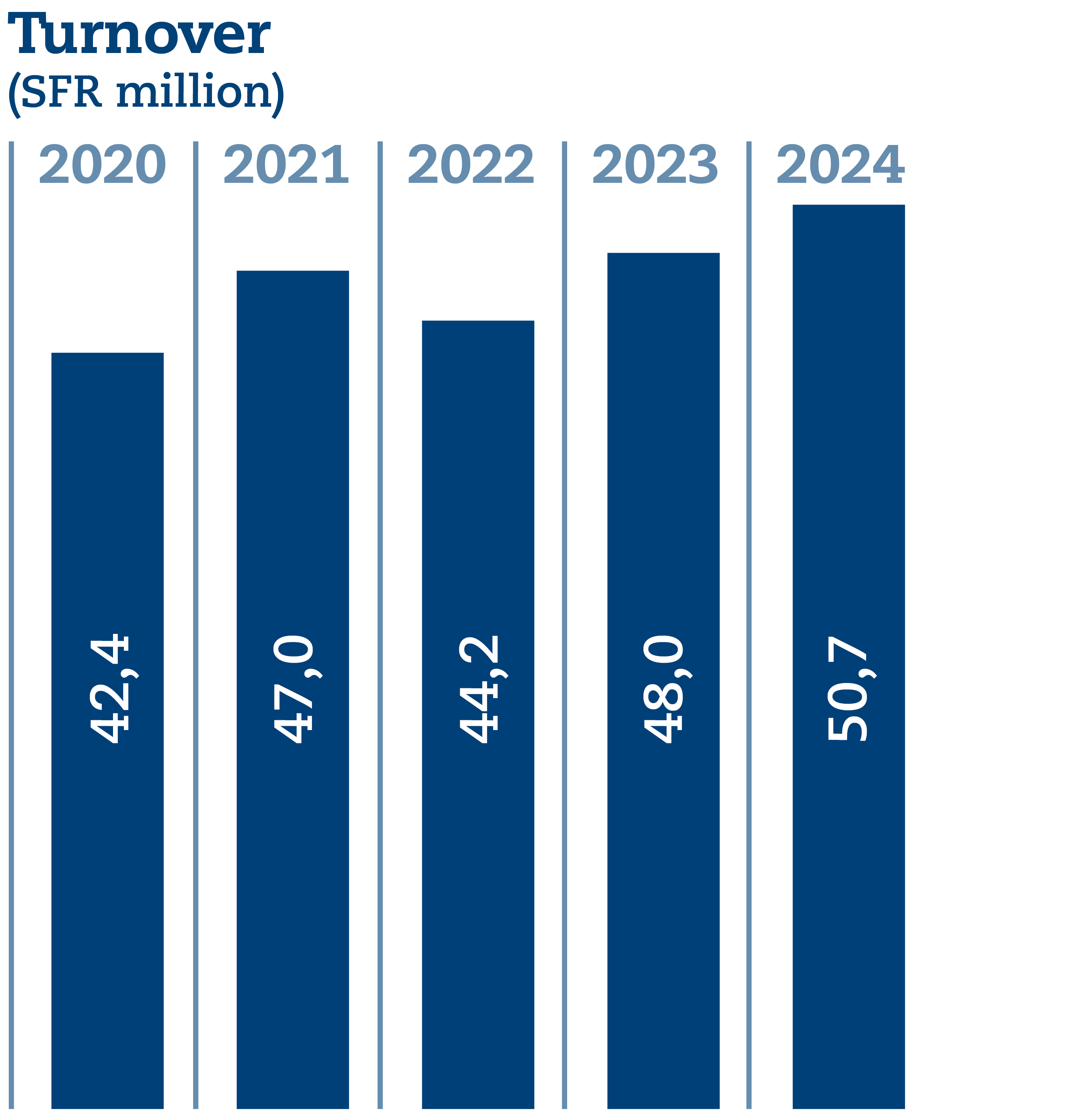
2.2 Course of business
In 2024, SQS achieved the highest turnover in its history at CHF 50.7 million, an increase of more than 5 per cent compared to the previous year (CHF 48.0 million). However, earnings before interest, taxes, depreciation and amortisation (EBITDA) and thus also the margin fell. This result shows two things. On the one hand, demand for our services continues to grow. On the other hand, costs have risen faster than income. The two most important extraordinary cost drivers were the development of MS Dynamics 365 as a new system for enterprise resource planning (ERP) and customer relationship management (CRM) as well as the regulatory environment. The requirements of state accreditation and private authorisation bodies are leading to an ever-increasing administrative burden. In addition, in the name of impartiality and high qualification requirements, these bodies are increasingly restricting the options for deploying auditors in a wide range of scopes. This reduces economies of scale, exacerbates the shortage of skilled labour and thus drives up costs.
Strategic business units 1 and 2
In 2023, SQS had over 100 products in its portfolio. A distinction was made between products
-
in the accredited area (authorisation to certify recognised standards by state accreditation bodies);
-
in the wider regulated area (authorisation for certification of private standards by private approval bodies);
-
in the non-regulated area.
Further information on accreditation in general and on SQS accreditations and authorisations can be found in the blog post «Accreditation: separating the wheat from the chaff | SQS». The Swiss Accreditation Body is by far the most important accreditation body for SQS, ahead of the Italian Accredia
The large - and growing - number of products should not obscure the fact that the majority of sales are generated with three main standards in the accredited area: ISO 9001:2015 (quality management), ISO 14001:2015 (environmental management) and ISO 45001:2018 (occupational health and safety). The 2024 financial year was also accompanied by a recertification cycle for the first two standards, which further boosted their importance - and therefore total revenue. In the last five years, the share of the three core standards in all certifications has always been between 66% and 70% (2024: 66%).
However: if the demand for certified information security management systems continues to develop as dynamically as it has in recent years, ISO 27001:2022 is likely to soon become the fourth core standard. The blog post Wall thick, doors closed shows why companies are increasingly making use of this service: Endress+Hauser turns information security into a competitive advantage | SQS.
In absolute terms, demand developed positively in both main markets, but was particularly dynamic in Italy: the proportion of certificates issued in Switzerland fell to 64% in 2024 (previous year: 66%), while the proportion of certificates issued in Italy increased to over 25% (previous year: 24%).
The core standards - in particular ISO 9001:2015 - are all the more important as they often form the basis for the integration of other standards for customers and are therefore a driver of cross-selling, where SQS can utilise the competitive advantage of its broad range. In our marketing and communication activities in 2024, we therefore consistently explained the benefits of integrated management systems (see, for example, the blog post IMS - What is an Integrated Management System? | SQS). At the end of 2024, almost 16% of customers had three or more SQS certificates.

The diverse applicability and integration capability of ISO management systems (ISO-MS) is also at the origin of the «ISO4ESG» idea, which was finalised in 2024: the acronym stands for the forward-looking use of ISO-MS in the context of the environment (Ecology), society (Society) and corporate management (Governance). For decades, SQS has been committed to the pragmatic application and further development of ISO instruments in the Swiss economy. ISO4ESG is the name of our efforts to use ISO-MS for the efficient and effective fulfilment of the increasing requirements for sustainable corporate governance. To this end, we carried out the following activities in 2024, among others:
-
Preparation and publication of a representative study with the University of Applied Sciences Graubünden (see the SQS blog post Keeping SMEs «compliant»: the potential of ISO management systems for sustainable corporate governance | SQS;
-
Development and publication of case studies (see, for example, the SQS blog post Sustainability as a system: How the SPZ introduced an integrated sustainability management system based on ISO 14001 | SQS);
-
Organisation of a discussion event with experts from all over the world on the occasion of a working session of the ISO working group for the revision of the ISO 14001:2015 standard at the SQS office in Zollikofen (see our LinkedIn post);
-
Development of the Sustainability Performance Standard published at the beginning of 2025.
With ISO4ESG, we are pursuing several strategic goals:
-
Satisfy customer needs;
-
strengthen the long-term relevance of ISO-MS standards;
-
position and differentiate the ISO competence and ISO reputation of SQS in the market for sustainability services;
-
utilise and create synergies within SQS.
In the strategic business unit 2 - the assessment and verification of sustainable corporate governance - the business with esg2go developed positively. This tool - developed by the Centre for Corporate Responsibility and Sustainability (CCRS) at the Fribourg School of Business - allows SMEs to credibly assess and communicate their sustainability performance with relatively little effort (proof of sustainability). SQS also acted as a strategic partner and preferred verification body for esg2go in 2024. In this role, it carried out a pilot project with the association and SQS member HotellerieSuisse - as in 2023 - in which 25 companies used esg2go. esg2go was also well received outside of the hotel industry (31 of the 37 verified establishments/locations were in other branches).
Strategic business unit 3
Further education in the area of management system standards and methods developed favourably. Sales grew again in 2024 - by 8 per cent to CHF 1.45 million (previous year: CHF 1.34 million). This was accompanied by an increase in the number of events held to 153 (previous year: 134). The proportion of online events was increased again due to customer needs - to a total of 78 (2024) from 54 (2023) - which also had a positive impact on the profitability of SGF3. Webinars can be adapted very flexibly to demand and result in significantly lower variable costs. Participant satisfaction remained constant at a high level (4.6 as in the previous year). The highest score is 5.0.
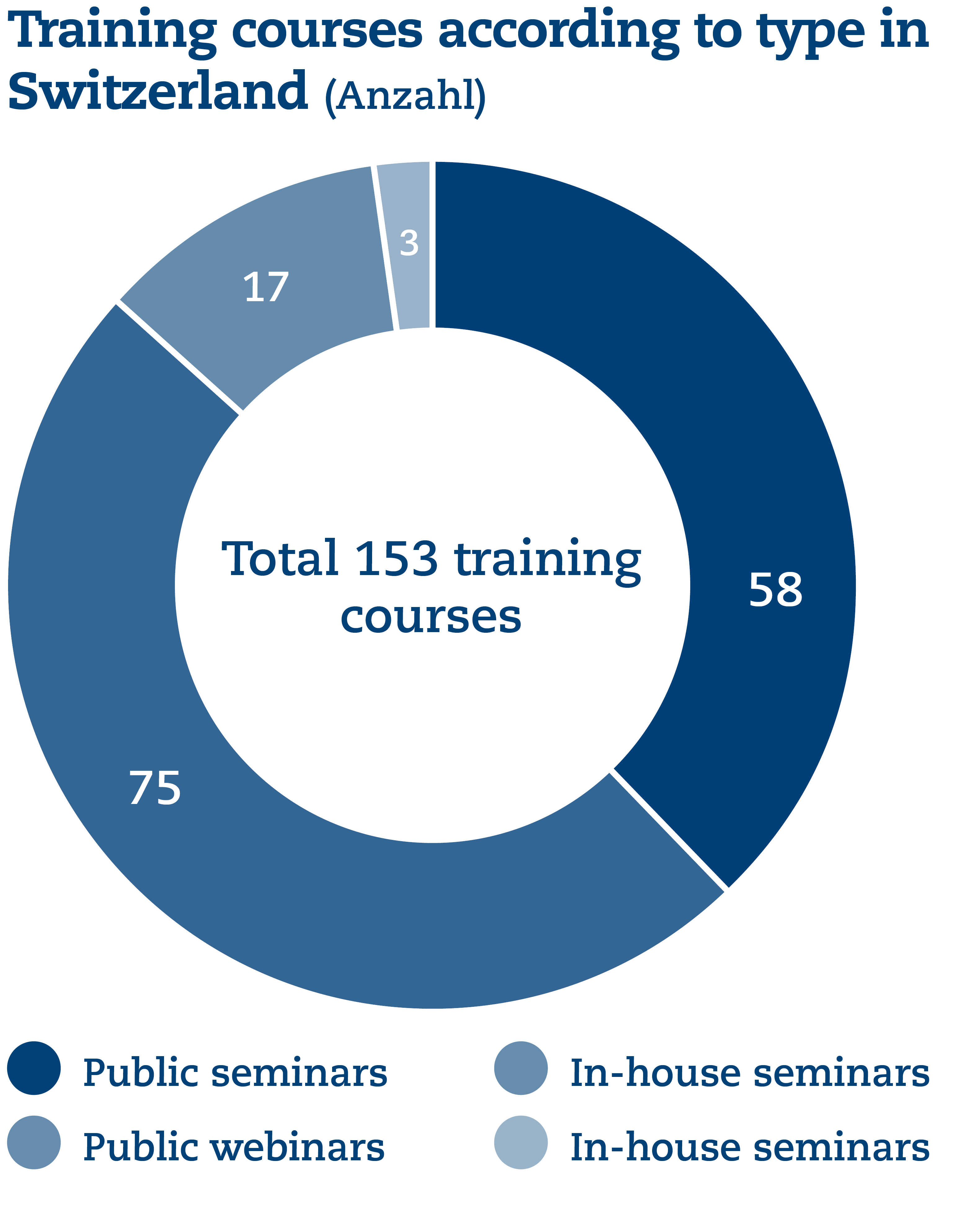
These key figures prove that the SQS approach to further education is proving its worth. It can be summarised as follows:
-
No sustainability without a holistic approach. Our educational programs are based on the same holistic approach that we apply to assessment and certification.
-
Education is not a canned product. We see education as a reciprocal teaching-learning process in which the interaction between the participants and with the lecturers is crucial.
-
Knowledge must have an impact. We design our training programs to be goal- and practice-oriented.
-
It's the mix that makes the difference. Our experienced lecturers bring together conceptual thinking and practice-proven action.
-
No degree without a connection. Our training programs are coordinated in such a way that professionals can continue their education with us for years, from beginner to expert.

